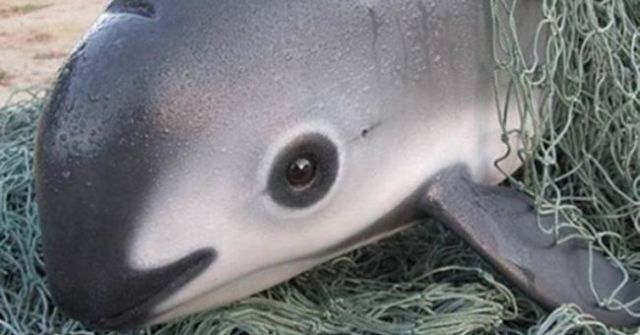There Are Only 22 Vaquita Porpoises Remaining, Scientists Predict Total Extinction (Videos)
by N.Morgan
.jpeg)
A team of Mexican biologists warns that one of the smallest and most critically endangered marine mammals, the vaquita porpoise, is likely to go extinct by June.
Namely, according to experts, the total population of the rare mammal, which is found exclusively in the Gulf of California, has been thinned out to about 22.
The small, five-foot-long cetaceans feed on fish and squid, and due to their snub stouts, dark eye patches, and smiling black lips, they have been referred to as a “marine Mona Lisa.”
One of the main causes for their extinction is the ongoing trafficking of the rare totoaba fish, whose swim bladder is highly valued in China as a delicacy, and they share their habitat with it.
According to the journalist Ben Goldfarb, these swim bladders can cost up to $100,000 per kilogram in mainland China and Hong Kong. Even though this fishing has been banned since 1975, poaching is rampant. Vaquitas easily get entangled and drown in illegal nets.
.png)
Consequently, experts worry that the next totoaba rush could literally wipe out the thinned out vaquita population.
The vaquita is somehow managing to hold on, and what is keeping it alive is a thin line of defenders. Namely, every night, 22 volunteer crew members from ships operated by the environmentalist group Sea Shepherd, go out to search the upper gulf for hidden gill nets left there in order to catch the prized totoaba fish.
However, this is extremely dangerous. For instance, the Sea Shepherd ship Farley Mowat has suffered two attacks as dozens of fast fishing boats pounded their ship with rocks and firebombs.
Yet, his mate Jack Hutton claims the vaquita will probably be immediately gone if they stop these operations. There is no hope if they stop removing the nets.
He claims they are aware they are risking their lives, and they will keep getting attacked, but without it, the vaquita won’t have a chance.
Jorge Urban, a researcher at Baja California Sur University (UABVS) and head of the Marine Mammal Research Program, claims the government has done nothing to solve the issue so far, and even though the species will be extinct, the totoaba fish trafficking will continue.
The main governmental efforts include moves to repress fishermen using force, and the angry fishermen often fight back to free arrested fellow seamen.
However, the fishermen–largely poverty-stricken laborers from the Baja coast maintain they are at the mercy of Chinese-Mexican illegal dealers and profiteers who give high-interest loans allowing fisherman to acquire nets which cost up to $3,000 each and sell their goods for an outrageous profit in China.
Moreover, investigator Andrea Costa from conservationist group Elephant Action League agrees the efforts of the Mexican government will fail as long as it targets fishermen instead of middlemen and traders. His efforts led to the arrests of 16 Chinese nationals involved the illegal totoaba trade.
Costa explained the problem is a sophisticated supply chain, and the problem will persist as long as the government does not address it differently, leading to the extinction of marine life in the Sea of Cortez.
We have an affiliate program designed for content creators and Affiliate marketers, who would like to sell this product, please click here for affiliate program details. Our affiliate program is designed to help you monetize your screen time.

References:
Comments
Post a Comment